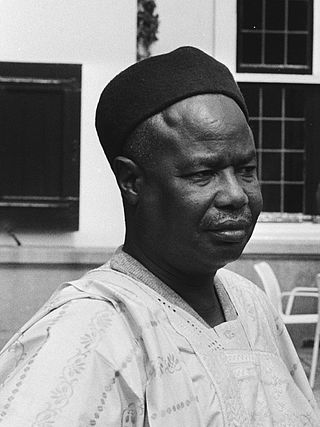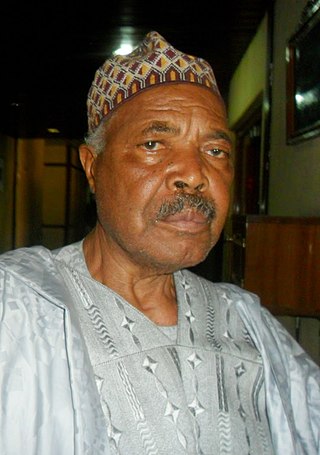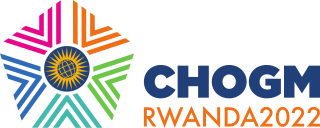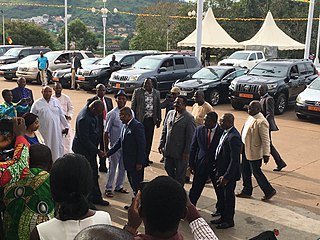
The politics of Cameroon takes place in a framework of a unitary presidential republic, whereby the President of Cameroon is both head of state and head of government, and of a multi-party system. A prime ministerial position exists and is nominally head of government, implying a semi-presidential system, although de facto only serves to assist the president. Executive power is exercised by the government. Legislative power is vested in both the government and the National Assembly of Cameroon.

Haradanahalli Doddegowda Deve Gowda is an Indian politician who served as the 11th prime minister of India from 1 June 1996 to 21 April 1997. He was previously the 14th Chief Minister of Karnataka from 1994 to 1996. He presently is a Member of Parliament in the Rajya Sabha representing Karnataka. He is the national president of the Janata Dal (Secular) party. Born in a farming family, he joined the Indian National Congress party in 1953, and remained a member until 1962. He was imprisoned during the Emergency. He became President of the state unit of Janata Dal in 1994, and was considered to be a driving force in the party's victory in Karnataka. He served as the 8th Chief Minister of Karnataka from 1994 to 1996. In the 1996 general elections, no party won enough seats to form a government. When the United Front, a coalition of regional parties, formed the central government with the support of the Congress, Deve Gowda was unexpectedly chosen to head the government and was elected Prime Minister. During his tenure as prime minister, he also served as Home Minister for some time. His prime ministerial tenure lasted for less than a year. After his prime ministerial tenure, he was elected to the 12th (1998), 14th (2004), 15th, and 16th Lok Sabha, as Member of Parliament for the Hassan Lok Sabha constituency. He lost Lok Sabha elections in 2019 from Tumkuru but has been elected to Rajya Sabha since.

Paul Biya is a Cameroonian politician who has been the second president of Cameroon since 6 November 1982, having previously been the prime minister of Cameroon from 1975 to 1982. He is the second-longest-ruling president in Africa, the longest consecutively serving current non-royal national leader in the world and the oldest head of state in the world.

Ahmadou Babatoura Ahidjo was a Cameroonian politician who was the first president of Cameroon, holding the office from 1960 until 1982. Ahidjo played a major role in Cameroon's independence from France as well as reuniting the French and English-speaking parts of the country. During Ahidjo's time in office, he established a centralized political system. Ahidjo established a single-party state under the Cameroon National Union (CNU) in 1966. In 1972, Ahidjo abolished the federation in favor of a unitary state.

Philémon Yunji Yang is a Cameroonian politician who served as Prime minister from 30 June 2009 to 4 January 2019. Previously he was Assistant Secretary General of the Presidency, with the rank of minister, from 2004 to 2009. He served in the government from 1975 to 1984 and was Cameroon's Ambassador to Canada from 1984 to 2004. He is the longest-serving Prime Minister in Cameroonian history.

The Government of India, also known as the Central Government or simply the Centre, is the national authority of the Republic of India, a federal democracy located in South Asia, consisting of 28 union states and eight union territories.

Under the current Constitution of Cameroon, the Prime Minister of Cameroon is a relatively powerless position. While the Prime Minister is officially appointed to be the head of government, the President retains most of the executive power and can fire the Prime Minister at will.

Simon Achidi Achu was a Cameroonian politician who served as the prime minister of Cameroon from 1992 to 1996. Previously he was Minister of Justice from 1972 to 1975. A leading member of the Cameroon People's Democratic Movement (CPDM), Achidi Achu was appointed Chairman of the National Investment Corporation in 2003, and he was elected to the Senate of Cameroon in 2013.

Laurent Esso is a Cameroonian politician who is currently serving in Joseph Ngute's government.
Bello Bouba Maigari is a Cameroonian politician currently serving in Joseph Ngute's government. He was the 2nd Prime Minister of Cameroon from 6 November 1982 to 22 August 1983 and has been the National President of the National Union for Democracy and Progress (UNDP) since January 1992. Although he was a key opposition leader for much of the 1990s, he has participated in the government since December 1997; he was Minister of State for Industrial and Commercial Development from 1997 to 2004, Minister of State for Post and Telecommunications from 2004 to 2009, and Minister of State for Transport from 2009 to 2009. Since December 2011, he has been Minister of State for Tourism and Leisure.

The Constitution of Cameroon is the supreme law of the Republic of Cameroon. Adopted in 1972, it is Cameroon's third constitution. The document consists of a preamble and 13 Parts, each divided into Articles. The Constitution outlines the rights guaranteed to Cameroonian citizens, the symbols and official institutions of the country, the structure and functions of government, the procedure by which the Constitution may be amended, and the process by which the provisions of the Constitution are to be implemented.

The 2022 Commonwealth Heads of Government Meeting, also known as CHOGM 2022, was the 26th Meeting of the Heads of Government of the Commonwealth of Nations. The meeting was originally scheduled for 26–27 June 2020 in Kigali, Rwanda preceded by various fora between 22 and 25 June, but was postponed twice due to the COVID-19 pandemic. On 31 January 2022, it was announced that the meeting would be held on 24 and 25 June 2022 and the pre-meeting fora held from 20 to 23 June.

Joseph Dion Ngute is a Cameroonian politician currently serving as the 9th Prime Minister of Cameroon, following his appointment in January 2019. He succeeded Philémon Yang, who had held the post since 2009.

The Major National Dialogue is the official name of a dialogue between the Government of Cameroon and various opposition parties, aimed at resolving the Anglophone Crisis. The event took place between September 30 and October 4, 2019.
The following lists events that happened during 2021 in Middle Africa, also called Central Africa.
Events in the year 2021 in Cameroon.
Events in the year 2024 in Cameroon.










